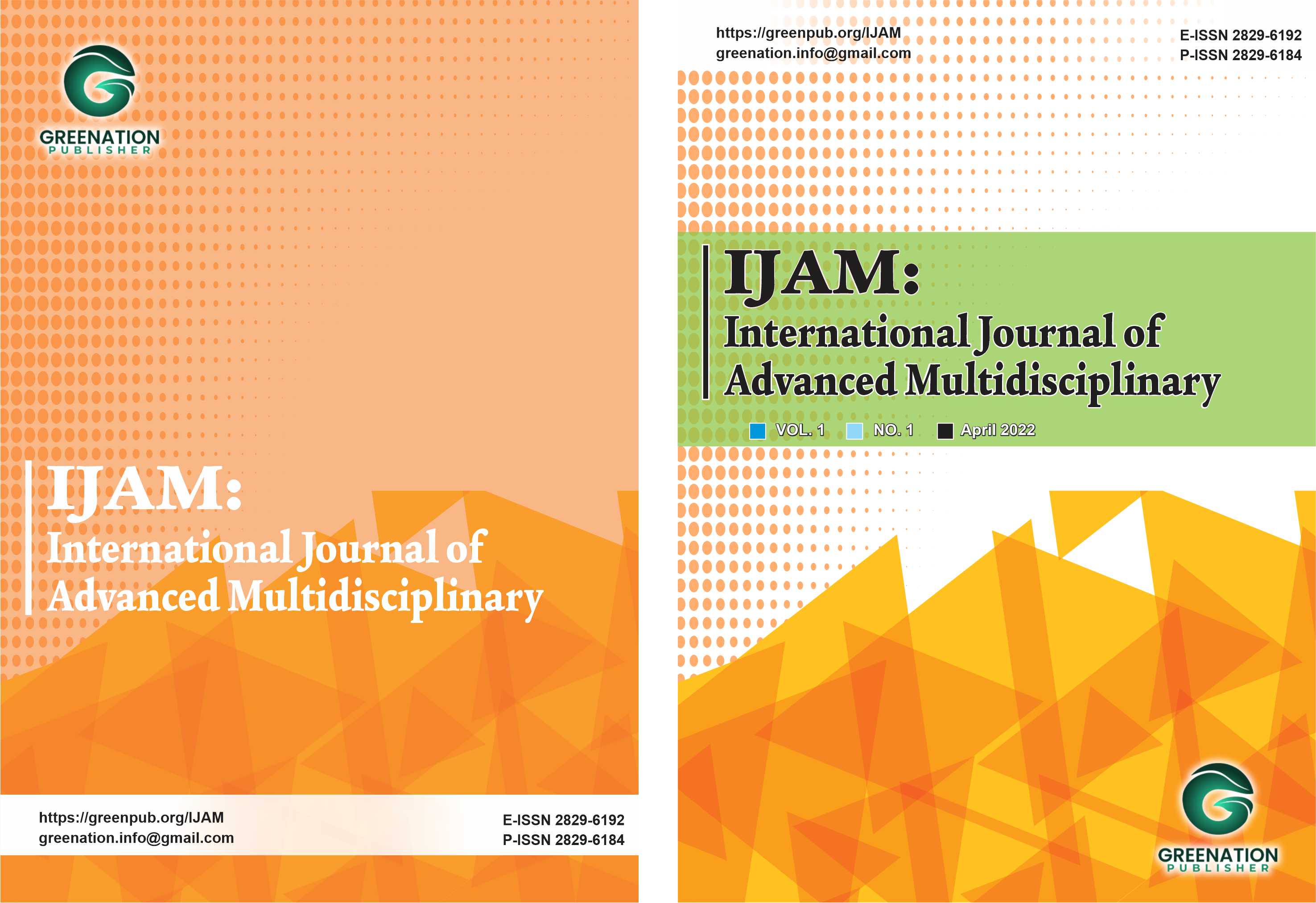Analysis of the SPW (School for Producing Entrepreneurs) Program and the Creative Product Subject to the Behavioral Business and Students Independence of XI Graders of Binakarya Mandiri, Bekasi
DOI:
https://doi.org/10.38035/ijam.v1i4.151Keywords:
Creative Product, Entrepreneurship, IndependenceAbstract
This study aims to determine the impact of the SPW (School for Producing Entrepreneurs) Program and Creative product on the behavioral business and student independence of eleventh-grade students at Binakarya Mandiri, Bekasi, during the 2021–2022 academic year. This study was conducted at Binakarya Mandiri Vocational High School, Bekasi with a population comprising a portion of class XI, to determine the number of samples for each class utilizing cluster sampling data collection techniques to gather 59 students using the Taro Yamane formula. Entrepreneurial interest is the desire to generate business prospects without fear of the associated risks and a desire for entrepreneurial success. Using a pre- and posttest questionnaire, the researchers obtained research data. Prior to receiving support in the SPW program, Creative students' interest in entrepreneurship was assessed using a pretest questionnaire. In the meantime, the posttest questionnaire was used to determine the extent to which students were interested in entrepreneurship after obtaining aid from the entrepreneurial printing school program and the creative and entrepreneurship products field of study. This study employs quantitative descriptive data with a specific percentage utilizing the Azwar scale formula so that the percentage can be determined and results can be stated in words or phrases. According to the data analysis, the findings of the pretest questionnaire, with an average score of 61.90, fall into the moderate group, and the results of the posttest questionnaire, with a score of 79.55, go into the very high category. The results of hypothesis testing indicate that tcount 8.271 > ttable 2.081 at a significance level of 5% with n = 55 and that there is an influence of the entrepreneurial school program and the field of study of creative and entrepreneurial products on the business behavior and independence (interest in entrepreneurship) of students, with the magnitude of the effect being 56%, with the remainder influenced by internal and external factors.
References
Alma, Buchari. 2011. Kewirausahaan (edisi revisi). Bandung : Alfabeta.
Ambadar, Jackie, Miranty Abidin dan Yanty Isa. 2010. Membentuk Karakter Pengusaha. Bandung : Kaifa dan Mizan Pustaka.
Arikunto, Suharsimi. 2014. Prosedur Penelitian. Jakarta : PT Rineka Cipta.
Aripin, Zaenal dan M. Rizqi Padma Negara. 2021. Perilaku Bisnis : Etika Bisnis dan Perilaku Konsumen. Sleman : Deepublish.
Bayu, Kartib. 2010. Kewirausahaan, Pendekatan Karakteristik Wirausaha Sukses. Jakarta : Kencana.
Dewi, Kurnia, Hasanah Yaspita dan Airine Yulianda. 2020. Manajemen Kewirausahaan. Sleman : Deepublish.
Fahmi, Irham. 2013. Kewirausahaan (Teori, Kasus dan Solusi). Bandung : Alfabeta.
Gibb, A.A. 1996. Entrepreneurship And Small Business Management : Can We Afford to Neglect Them in the 21st Century Business School?. British Journal of Management, 7 : 309-321.
Harnali, Arif Yusuf dan Eka Sari Budihastuti. 2017. Pemahaman Kewirausahaan – Strategi Mengubah Pola Pikir “Orang Kantoran” Menuju Pola Pikir “Wirausahawan” Sukses. Jakarta : Kencana Prenada Media Grup.
Hidayat, Rachmat. 2019. Menumbuhkan Jiwa Kewirausahaan. Sleman : Deepublish.
Husna, Aftina Nurul. 2020. Dari Mahasiswa untuk Indonesia : Kewirausahaan dan Inovasi di Era Digital. Magelang : Unimma Press
Hutagalung, Raja Bonsu, dan Situmorang, Syafrizal Helmi. 2008. Kewirausahaan. Medan : USU Press.
Jamieson,I. 1984. Schools and Enterprise. In Watts, A. and Moran, P. Education for Enterprise. Cambridge : CRAC.
Jaya, I Made Laut Mertha. 2020. Metode Penelitian Kuantitatif dan Kualitatif : Teori, Penerapan dan Riset Nyata. Yogyakarta : Anak Hebat Indonesia.
Kasmir. 2014. Kewirausahaan (edisi revisi). Jakarta : Rajagrafindo Persada.
Kuswiratmo, Bonifasius Aji. 2016. Memulai Usaha Itu Gampang. Jakarta : Visimedia.
Milla, Hilyati. Pendidikan Kewirausahaan : Sebuah Alternatif Mengurangi Pengangguran Terdidik dan Pencegahan Korupsi. Jurnal Al-Ta’lim, Jilid 1, Nomor 6, November 2013, halaman 465-471.
Prihadi, M. Dana. 2020. Kewirausahaan : Membentuk Pola Pikir dan Menjadi Sumber Daya Manusia Unggul. Malang : Ahlimedia Press.
Purboyo, Sri Hastutik, dkk. 2021. Perilaku Konsumen : Tinjauan Konseptual Dan Praktis. Bandung : Media Sains Indonesia.
Riduwan. 2015. Belajar Mudah Penelitian. Bandung : Alfabeta.
Rumijati, Aniek, Aries Soelistyo, dkk. 2020. Kemandirian Ekonomi dan Bisnis Indonesia Menghadapi Era Revolusi Industri 4.0. Malang : UMMPress.
Sianipar, Eduar B., dan Karyadi Hidayat. 2016. Statistik (Analisis Regresi & Korelasi). Palembang : Noer Fikri.
Suciono, Wira. 2021. Berpikir Kritis (Tinjauan Melalui Kemandirian Belajar, Kemampuan Akademik dan Efikasi Diri). Indramayu : CV. Adanu Abimata.
Suryana. 2014. Kewirausahaan (Kiat dan Proses Menuju Sukses). Jakarta : Salemba Empat.
Susilowati, Nurdian dan Nisaul Barokati Seliro. 2017. Kewirausahaan (Buku 1). Malang : Ahlimedia Book.
Yusuf, A. Muri. 2017. Metode Penelitian Kuantitatif, Kualitatif dan Penelitian Gabungan. Jakarta : Kencana.
Downloads
Published
How to Cite
Issue
Section
License
Authors who publish their manuscripts in this journal agree to the following conditions:
- The copyright on each article belongs to the author(s).
- The author acknowledges that the International Journal of Advanced Multidisciplinary (IJAM) has the right to be the first to publish with a Creative Commons Attribution 4.0 International license (Attribution 4.0 International (CC BY 4.0).
- Authors can submit articles separately, arrange for the non-exclusive distribution of manuscripts that have been published in this journal into other versions (e.g., sent to the author's institutional repository, publication into books, etc.), by acknowledging that the manuscript has been published for the first time in the International Journal of Advanced Multidisciplinary (IJAM).






















